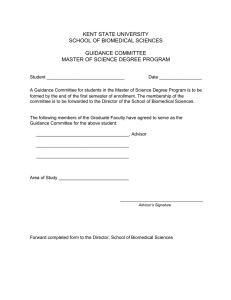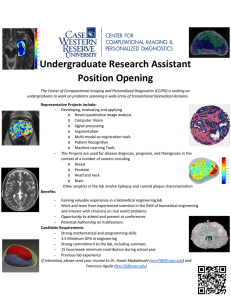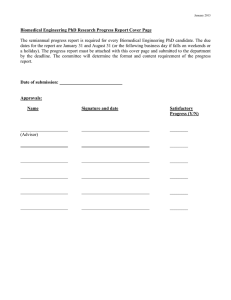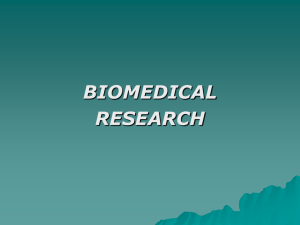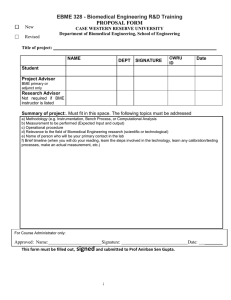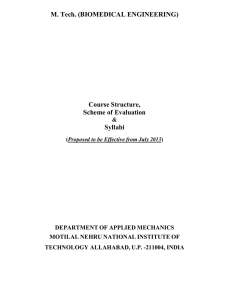Biomedical Engineering BE Degree in Biomedical Engineering Professional Experience Programme (PEP)
advertisement
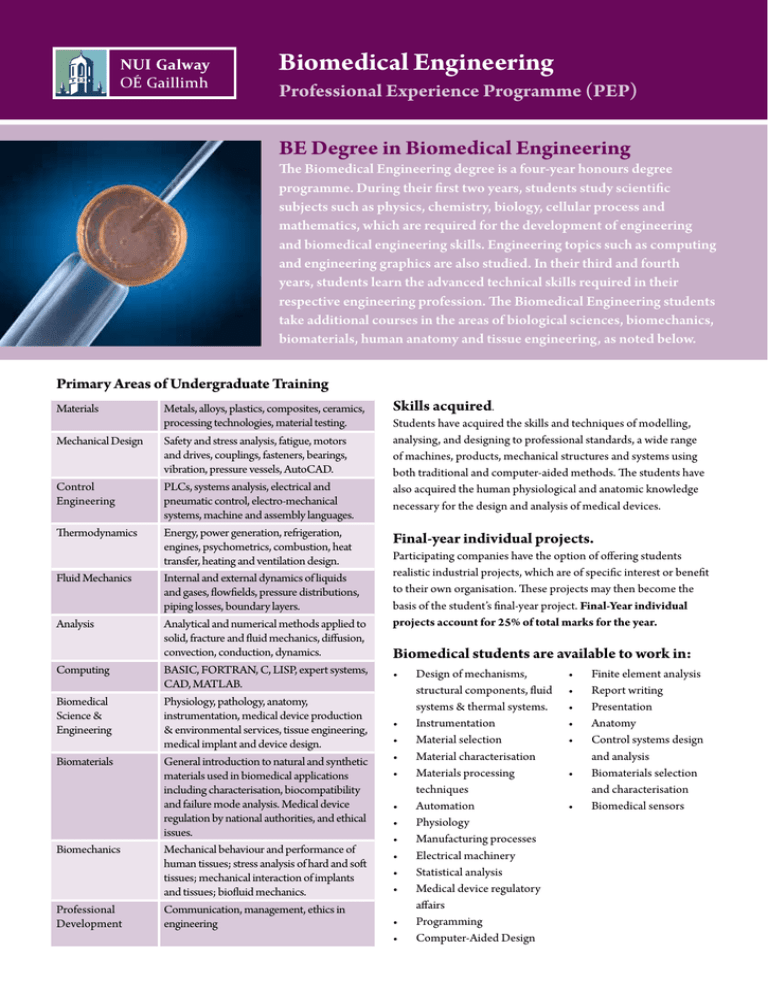
Biomedical Engineering Professional Experience Programme (PEP) BE Degree in Biomedical Engineering The Biomedical Engineering degree is a four-year honours degree programme. During their first two years, students study scientific subjects such as physics, chemistry, biology, cellular process and mathematics, which are required for the development of engineering and biomedical engineering skills. Engineering topics such as computing and engineering graphics are also studied. In their third and fourth years, students learn the advanced technical skills required in their respective engineering profession. The Biomedical Engineering students take additional courses in the areas of biological sciences, biomechanics, biomaterials, human anatomy and tissue engineering, as noted below. Primary Areas of Undergraduate Training Materials Metals, alloys, plastics, composites, ceramics, processing technologies, material testing. Mechanical Design Safety and stress analysis, fatigue, motors and drives, couplings, fasteners, bearings, vibration, pressure vessels, AutoCAD. PLCs, systems analysis, electrical and pneumatic control, electro-mechanical systems, machine and assembly languages. Energy, power generation, refrigeration, engines, psychometrics, combustion, heat transfer, heating and ventilation design. Internal and external dynamics of liquids and gases, flowfields, pressure distributions, piping losses, boundary layers. Analytical and numerical methods applied to solid, fracture and fluid mechanics, diffusion, convection, conduction, dynamics. BASIC, FORTRAN, C, LISP, expert systems, CAD, MATLAB. Physiology, pathology, anatomy, instrumentation, medical device production & environmental services, tissue engineering, medical implant and device design. General introduction to natural and synthetic materials used in biomedical applications including characterisation, biocompatibility and failure mode analysis. Medical device regulation by national authorities, and ethical issues. Mechanical behaviour and performance of human tissues; stress analysis of hard and soft tissues; mechanical interaction of implants and tissues; biofluid mechanics. Communication, management, ethics in engineering Control Engineering Thermodynamics Fluid Mechanics Analysis Computing Biomedical Science & Engineering Biomaterials Biomechanics Professional Development Skills acquired. Students have acquired the skills and techniques of modelling, analysing, and designing to professional standards, a wide range of machines, products, mechanical structures and systems using both traditional and computer-aided methods. The students have also acquired the human physiological and anatomic knowledge necessary for the design and analysis of medical devices. Final-year individual projects. Participating companies have the option of offering students realistic industrial projects, which are of specific interest or benefit to their own organisation. These projects may then become the basis of the student’s final-year project. Final-Year individual projects account for 25% of total marks for the year. Biomedical students are available to work in: • • • • • • • • • • • • • Design of mechanisms, structural components, fluid systems & thermal systems. Instrumentation Material selection Material characterisation Materials processing techniques Automation Physiology Manufacturing processes Electrical machinery Statistical analysis Medical device regulatory affairs Programming Computer-Aided Design • • • • • • • Finite element analysis Report writing Presentation Anatomy Control systems design and analysis Biomaterials selection and characterisation Biomedical sensors
